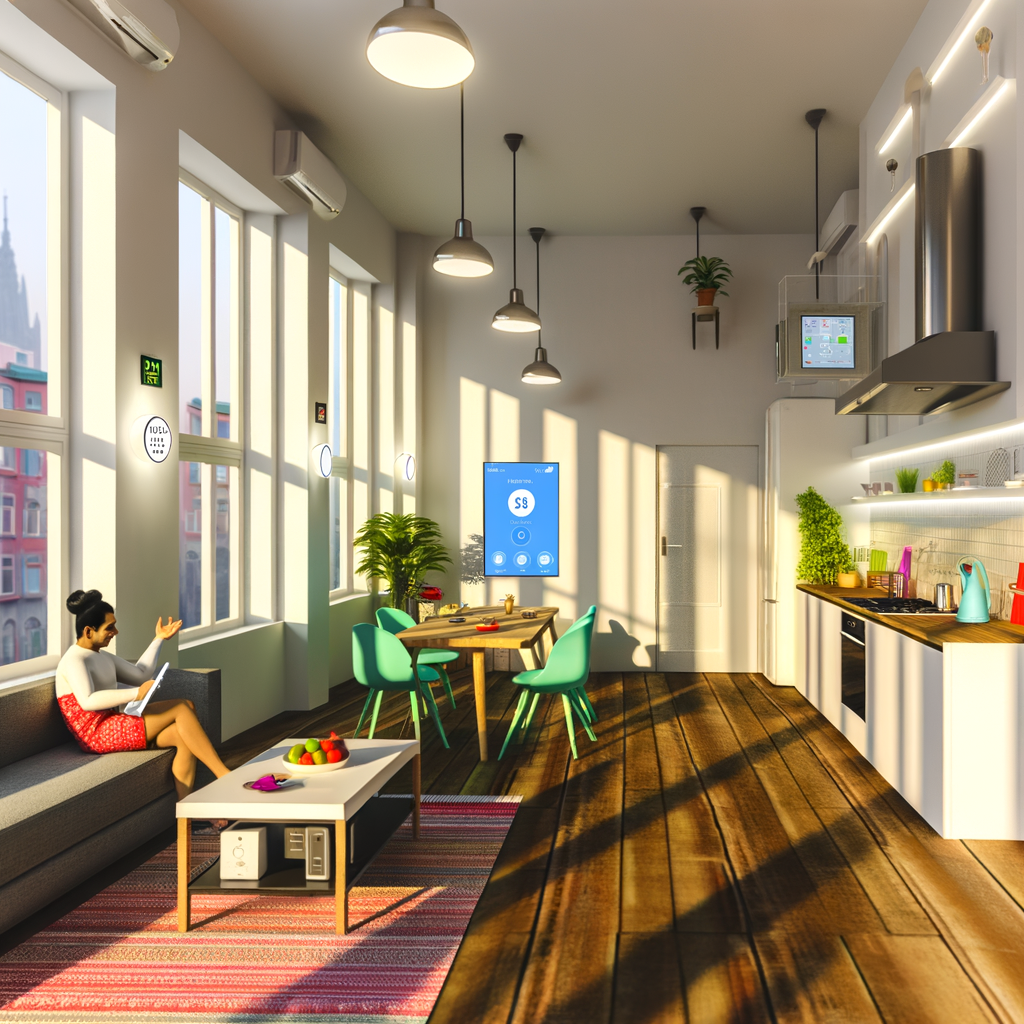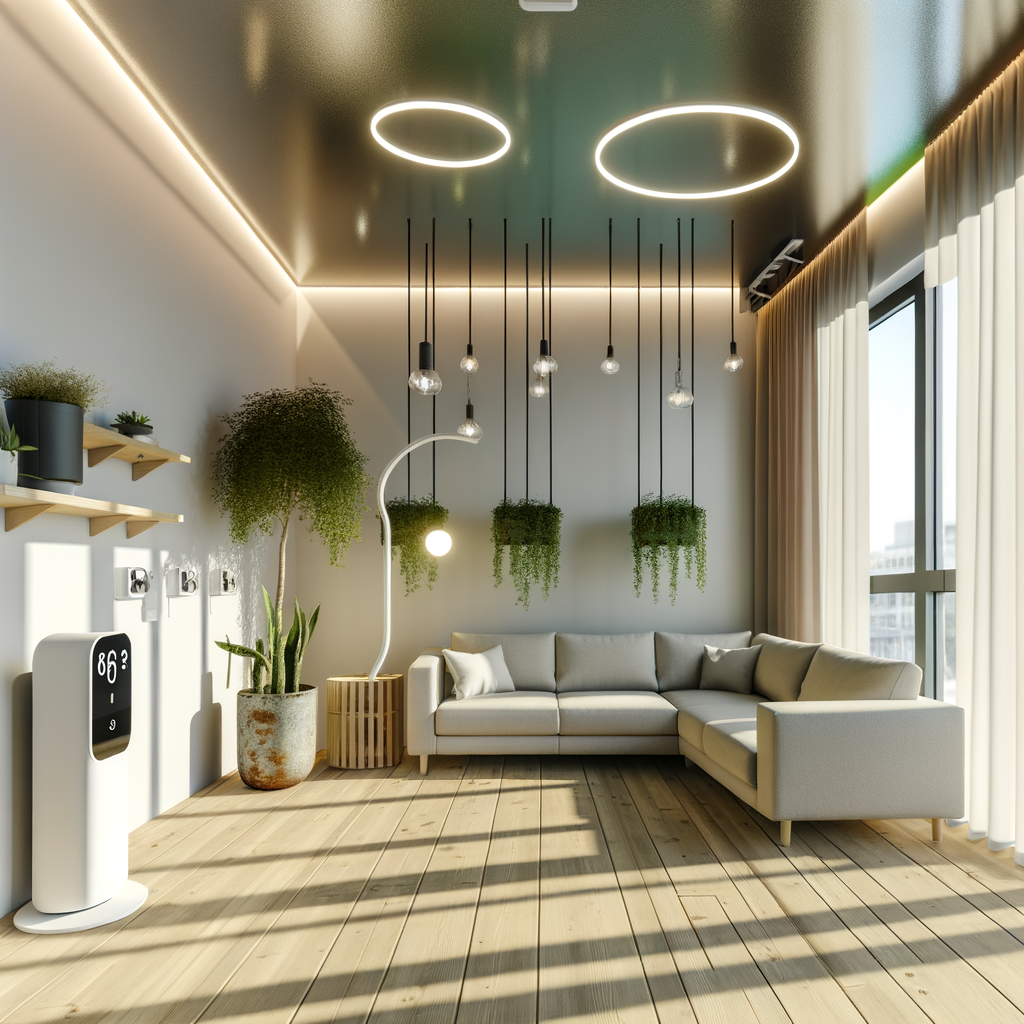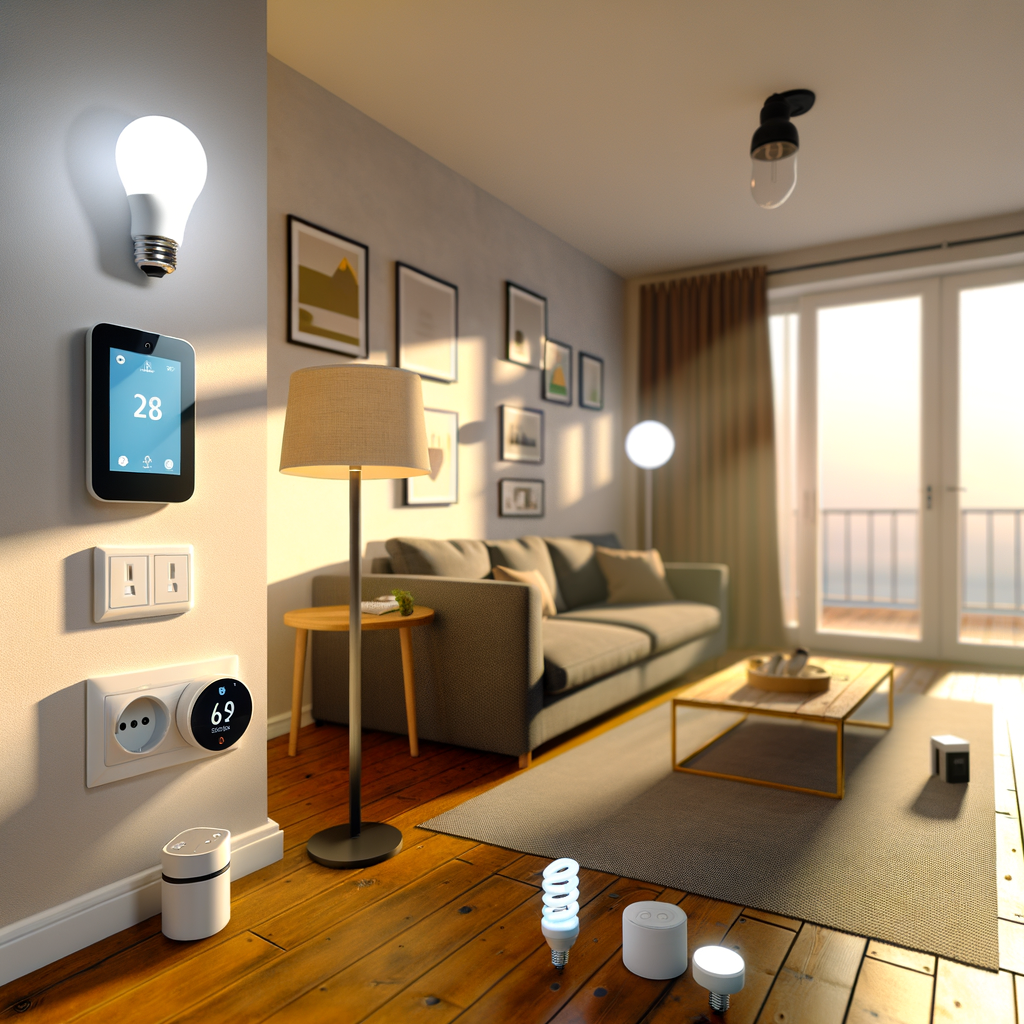How to Build a Smart, Energy-Efficient Apartment on a Budget: A Renter’s Step-by-Step Guide
Building a smart, energy-efficient apartment doesn’t have to be expensive, complicated, or limited to homeowners. As a renter, you might assume your eco-friendly options are few and far between—but the truth is, even temporary spaces can benefit from affordable smarts and energy-saving upgrades.
This step-by-step guide will walk you through optimizing your apartment’s efficiency, from controlling temperature to managing lights, all within a renter-friendly budget. Let’s transform your rental into a smarter, greener home—without risking your security deposit.
Why Go Smart and Energy-Efficient as a Renter?
Benefits include:
- Lower utility bills – Use energy only when you need it.
- Greater comfort & convenience – Automate routines and settings to fit your lifestyle.
- Reduced carbon footprint – Shrink your impact without renovating.
- Higher rental appeal – Bring extra value and amenities with you to your next place.
Step 1: Assess Your Apartment’s Potential
Understand What You Control
- Lighting: Switches, bulbs, smart plugs
- Heating/cooling: Freestanding units, window ACs, radiators
- Appliances: Fridges, fans, TVs, kitchen gadgets
- Water: Faucets, showerheads (sometimes swappable)
Make a list of the devices and features you can upgrade or automate without permanent changes.
Review Your Lease
- Check for rules on modifications—even small fixes like changing thermostats or adding sensors.
- If unsure, ask your landlord about reversible upgrades.
Step 2: Prioritize High-Impact Areas
Maximize your efforts by starting with upgrades that offer the biggest payback:
- Lighting control: Smart bulbs or plugs are easy to install and cut waste.
- Heating and cooling: Programmable thermostats, window insulation, smarter fans.
- Phantom loads: Plug-in smart strips to stop electronics from sipping power when off.
- Water-saving devices: Aerators and efficient showerheads can often be swapped and put back.
Step 3: Start with Smart Lighting
Use LED and Smart Bulbs
- Switching to LED bulbs reduces energy use immediately.
- Smart bulbs (WiFi or Bluetooth) let you control brightness, color, and scheduling from your phone.
- They fit in standard sockets and travel easily when you move out.
Add Smart Plugs
- Plug in lamps or electronics—now you can control them via app or voice commands (Alexa, Google Assistant, etc.).
- Set automatic schedules, or turn devices off from anywhere. Great for forgotten lights and devices.
Action Steps
- Replace your most-used bulbs with ENERGY STAR LEDs.
- Install smart plugs for any device you power frequently.
- Organize by room—for example, all bedroom lamps on one plug or schedule.
Step 4: Smarten Up Climate Control
Portable Smart Thermostats (No Wiring Required)
- Traditional smart thermostats usually require wiring, which isn’t allowed in most rentals.
- Instead, use smart AC controllers or standalone thermostat plugs that make window units or space heaters programmable and WiFi-enabled.
- Look for devices that use IR to communicate with your existing AC/fan.
DIY Temperature Management
- Install draft blockers under doors and on windows—no tools or damage required.
- Use thermal curtains to retain heat in winter and block sun in summer.
- Programmable fans can supplement your comfort without cranking HVAC up or down.
Action Steps
- Buy a WiFi-enabled AC controller for your window unit if you have one.
- Seal leaks in doors and windows with removable weatherstripping.
- Set up a schedule to pre-cool or pre-heat your space before you arrive.
Step 5: Eliminate Phantom Power Drains
Why Phantom Loads Matter
“Phantom” or “vampire” loads come from electronics that use electricity even when switched off (think TVs, chargers, computers, the microwave clock).
- These loads can account for up to 10% of your bill.
How to Stop Them
- Smart power strips – Schedule or remotely cut off multiple devices at once.
- Manual power strips – Consider for harder-to-automate areas.
- Identify always-on offenders – Consoles, streaming devices, etc.
Action Steps
- Plug entertainment centers, office setups, and kitchen small appliances into smart or timer-equipped strips.
- Schedule overnight shutoff or use voice commands to power down.
Step 6: Streamline Water & Appliance Use
Swappable Water-Saving Devices
- Showerheads and faucet aerators: If your lease allows, swap them for low-flow models (save the originals to re-install when you move).
- Install in minutes (often hand-tightened, tool-free).
- Reduces water and energy used for hot water.
Smart Appliances and Monitors
- While major appliance upgrades aren’t practical, add-on energy monitors (like the Sense plug or Emporia plug monitor) track usage.
- Smart plugs can automate and monitor small kitchen appliances and space heaters.
Step 7: Create Routines for Consistent Savings
Once you’ve added smart bulbs, plugs, or AC controls, set up routines for seamless efficiency:
- Automatic on/off schedules for lights and electronics.
- Away/vacation mode to turn off all non-essential devices when you’re gone.
- Smart speaker voice commands for instant control—no more leaving lights on accidentally.
- Use “geo-fencing” to control devices based on your location.
Step 8: Track Your Progress and Adjust
Monitor Energy and Water Usage
- Many utility providers offer online usage dashboards—sign up if you haven’t.
- Use apps from your smart devices to track hourly, daily, or monthly trends.
- Adjust routines or device schedules based on what you learn.
Celebrate Small Wins
- Compare utility bills month-over-month.
- Notice improvements in home comfort and convenience.
- Refine your setup as you discover what works best for your rental and schedule.
Budget-Saving Tips for Renters
- Start small – Upgrade one room at a time or focus on one category (lighting, climate, etc.).
- Buy multipacks and bundles – Save per unit when buying bulbs or plugs in bulk.
- Look for utility rebates – Many cities and energy providers give rebates or discounts for smart/efficient products (check their websites for renter-eligible programs).
- Resell or relocate – Take your smart gear with you when you move; many devices




